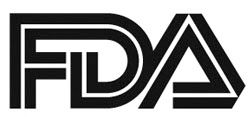Caplacizumab-yhdp Approved by FDA For Acquired Thrombotic Thrombocytopenic Purpura
The first treatment regimen has been approved by the FDA to treat adult patients with acquired thrombocytic thrombocytopenic purpura: the nanobody caplacizumab-yhdp when given in combination with plasma exchange and immunosuppression.

The first treatment regimen has been approved by the FDA to treat adult patients with acquired thrombocytic thrombocytopenic purpura (aTTP): the nanobody caplacizumab-yhdp (Cablivi) when given in combination with plasma exchange and immunosuppression.1
This approval is based on data from the pivotal phase III HERCULES trial. According to these findings, the caplacizumab-yhdp regimen resulted in a significantly shorter time to platelet count response versus plasma exchange and immunosuppression alone (HR, 1.55; 95% CI, 1.10-2.20;P= .01).2
"aTTP is a very severe, life-threatening disease. For those faced with this rare diagnosis, the treatment and care can be difficult and the threat of recurrence is ever-present," said Spero R. Cataland, MD, professor of internal medicine, Division of Hematology, Wexner Medical Center at Ohio State University. "Cablivi provides new hope for adults in the US suffering with aTTP and provides a much-needed treatment option to help effectively manage aTTP episodes."
aTTP is a rare autoimmune blood disorder, in which patients are often routinely treated in intensive care units during the first few days following diagnosis. The current available treatments include plasma exchange and immunosuppression. However, up to 20% of patients die from TTP episodes, with most deaths occurring within 30 days of diagnosis. The disease affects fewer than 2000 adult patients annually.
Additionally, in aTTP, buildup of ultra-large von Willebrand factor (vWF) can lead to extensive clot formation in small blood vessels throughout the body, which in turn can lead to severe thrombocytopenia, microangiopathic hemolytic anemia, and ischemia. Caplacizumab-yhdp targets the vWF protein, which is in the blood and involved in hemostasis.
In the multicenter, double-blind, placebo-controlled HERCULES trial, 145 patients experiencing an aTTP episode were randomized to receive caplacizumab-yhdp at 10-mg intravenous loading bolus followed by 10 mg daily subcutaneously in combination with plasma exchange and immunosuppressive therapy (n = 72) or placebo with plasma exchange and immunosuppressive therapy (n = 73).
The primary endpoint was time to normalization of the platelet count, with discontinuation of daily plasma exchange within 5 days; secondary endpoints included a composite of TTP-related death, recurrence of TTP, or a thromboembolic event during the trial treatment period, recurrence of TTP during the trial; refractory TTP; and normalization of organ-damage markers.
Results showed that the median time to normalization of the platelet count was shorter with caplacizumab-yhdp at 2.68 days (95% CI, 1.89-2.83) than with placebo at 2.88 days (95% CI, 2.68-3.56;P= .01). Additionally, caplacizumab-yhdp demonstrated a significant reduction on a composite endpoint of aTTP-related death, recurrence of aTTP, or a major thromboembolic event during study treatment versus plasma exchange and immunosuppression alone (12.7% vs 49.3%; P <.0001). There was also a significantly lower percentage of aTTP recurrences in the overall study period compared with plasma exchange and immunosuppression alone (13% vs 38%;P<.001).
In both the HERCULES and phase II TITAN trials, the second of which also evaluated caplacizumab-yhdp in patients with aTTP, the most frequently reported adverse events (AEs) were epistaxis (29%), headache (21%) and gingival bleeding (16%). In the placebo group, there were 2 deaths reported in TITAN and 3 deaths reported in HERCULES. No deaths were reported during the study drug treatment period in the caplacizumab-yhdp group in either study. However, 1 death was reported in the HERCULES study during the treatment-free follow-up period, but was not found to be related to caplacizumab-yhdp.
"The US approval of Cablivi provides a much-needed treatment option for people facing this challenging disease. There have been limited medicines available to treat aTTP until now," says Olivier Brandicourt, MD, chief executive officer of Sanofi, the manufacturer of the caplacizumab-yhdp. "Cablivi marks the first US approval in our newly formed rare blood disorders franchise, and we look forward to continuing to provide important medicines for people living with these very serious diseases."
References:
- FDA approves Cablivi® (caplacizumab-yhdp), the first Nanobody®-based medicine, for adults with acquired thrombotic thrombocytopenic purpura (aTTP). Sanofi. Published February 6, 2019. https://bit.ly/2SdZuCG. Accessed February 6, 2019.
- Scully M, Cataland SP, Peyvandi F, et al. Caplacizumab treatment for acquired thrombotic thrombocytopenic purpura.N Eng J Med. 2019;380:335-346. doi: 10.1056/NEJMoa1806311.